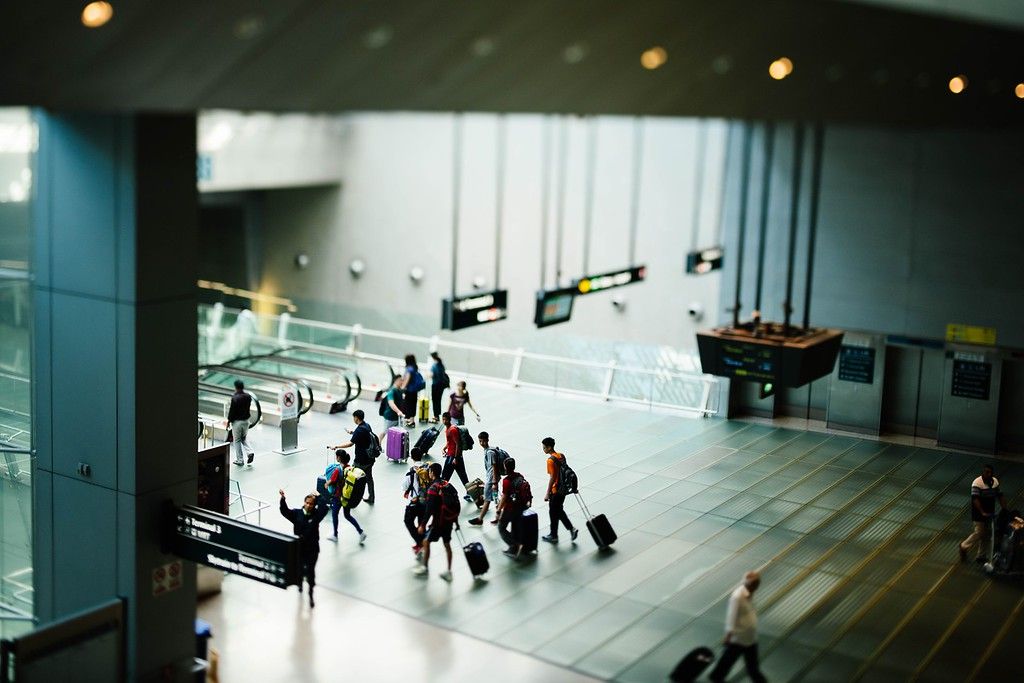Law No. 21.325 - New Immigration and Foreigners Law

20 April, 2021 / By Luis Parada, Gabriela Andrade and Ignacio Abogabir.
On April 20, 2021, and after eight years of processing, the New Immigration and Foreigners Law (the “New Immigration Law”) was published in the Official Gazette, which replaces the current legislation, dating from 1975, and which was evidently surpassed by the reality of globalization and migratory flows, updating the Chilean institutions in this matter.
About it we can point out the following:
- General aspects:
- In general terms, the New Migration Law strengthens the migratory institutionality, modifies the procedure for obtaining residence permits, and imposes obligations to the State, in terms of giving greater traceability to the migratory situation of foreigners during the different stages of the visa process.
- Migratory categories are modernized to the economic needs and global displacement, such as the one that recognizes the permit for seasonal employees.
- Residence visas must be requested from the corresponding Consulates and processed from abroad, so that foreigners will enter the country with an already determined migratory category. This restricts the current system, which freely allows the transition between the status of tourist and that of resident authorized for the development of remunerated activities, a figure that did not allow transparency from the beginning of the intentions to work of the great majority of people who entered the country as tourists.
- It is established that the President of the Republic will define a National Policy on Migration and Foreigners and a Council on Migration Policy is created.
- The National Migration Service (the “Service”) is created, which will replace the Department of Immigration (“DEM”), which will be in charge of granting, extending and revoking all residence and permanence permits, except in the case of official residents, which will be the responsibility of the Ministry of Foreign Affairs.
- The principle of the best interest of the child and adolescent is incorporated, indicating that the State will adopt all necessary measures to ensure the full exercise of their rights, as soon as they enter the country and regardless of the immigration status of their parents or the adults who have them in their care.
- It refers to the obligation of the State to create all the necessary conditions for persons with disabilities referred to in Law No. 20,422 (on Equal Opportunities and Social Inclusion of Persons with Disabilities) to be able to apply for their residence permits.
- An imperative prohibition of entry is established for foreigners who have been convicted, are being prosecuted, charged, accused or judicially persecuted abroad, as well as for those individuals who execute or have executed acts that Chilean laws classify as crimes against foreign security, national sovereignty or internal security. This is one of the main changes of the new regulations in relation to the previous system, whose prohibition of entry with respect to these persons was optional for the authority.
- The changes in the migratory categories originated by the New Migration Law will in no case affect the acquired rights of foreign citizens residing in the country.
- Dependents will be authorized to perform remunerated activities, subject to the conditions and restrictions to be established by the regulations. This is also a novel aspect in relation to the previous legislation, which did not allow the work of dependents in any respect.
- The fines applicable to foreigners who are rendering paid services in an irregular manner are increased.
- The New Immigration Law will enter into force once its regulations are published, which may be issued by the President of the Republic within one year from the date of publication. Until such supreme decree is issued, the current migratory categories will be in force.
- Particular aspects:
- The obligation of the Service to report the processing status of residence applications every 60 working days, through the mechanisms indicated in the regulations, is indicated.
- Without prejudice to prohibit the hiring of foreigners in an irregular condition, the employer will have the obligation to comply with all labor and social security obligations of irregular foreign employees.
- Foreigners whose permit has expired, may request its extension within nine months from its expiration and must only comply with the payment of the associated fine.
- Rules are established on the recognition, validation and revalidation of professional and technical degrees obtained abroad.
- Application for a Unique National Number (RUN): State agencies that need to assign a number that identifies a foreigner who requires their services must request the Civil Registry and Identification Service to assign a RUN, which, except in cases of urgency, will be granted upon registration of the person and will be valid for all purposes.
- Temporary residents must report any change of address within 30 calendar days of such change.
- Migratory Categories:
The qualities of transitory, official resident, temporary or definitive stay permit are established.
- Transitory permanence permit (which will replace the current “Tourist” status):
- For foreigners that may remain in the country for up to 90 days, and may be extended for up to another 90 days. In cases of force majeure, it may be extended once more, for the time necessary to leave the country.
- As a general rule, holders of transitory permanence permits who are in the country may not change their migratory category.
- In general terms, no prior authorization or visa is required to enter the country.
- Prior authorization or visa may be required for nationals of certain countries (which may be granted for up to 10 years), in the event that this is determined for qualified reasons of national interest or for reasons of international reciprocity.
- Individuals with a transitory permanence permit may not engage in remunerated activities, unless authorized to perform specific and sporadic activities. This permit may be obtained prior to entry into the country, which will simplify the process of short-term transfers for international companies or those requiring short-term services from foreign suppliers.
- Temporary Resident (which will replace the current status of resident with “temporary visa” and with “visa subject to employment agreement”):
- Permit for foreigners who have the purpose of settling in Chile, who will be able to develop remunerated activities in the country.
- The possibility of requesting this residence from abroad is established, remotely by telematics means or by the means determined by the Service (process for which the work of the Consulates will be required).
- The subcategories of this migratory category will be defined by the regulation of the law.
- Except in special cases, the duration of temporary residence will be up to two years.
- A subcategory will be established for seasonal employees who enter the country for limited periods, single or inter-annual, in order to perform specific seasonal work. This residence may be valid for up to five years.
- Permanent residency (will replace the current permanent residency).
- It is a permit to settle indefinitely in Chile, which authorizes the development of any lawful activity.
- Temporary residents who hold a temporary residence permit that admits the application to become a permanent resident, and who have resided in the country for at least 24 months, a term that has been extended, since currently a person with a temporary visa with a duration of one year, may apply for permanent residence by complying with the requirements for it. However, by means of a regulation, this period of residence may be extended to 48 months based on certain antecedents of the interested party (insufficient means to subsist, periods of absence in the country, infringement of legal regulations in Chile, among others). On the other hand, the term could be reduced to one year, in case of family ties with nationals, availability of income, investments, or contribution to the country in different areas.
- Official Resident: This permit is granted to foreigners who are on an official mission recognized by Chile (Diplomats) and their dependents.
| Contact |
| For more information, please contact |
| Luis Parada Partner lparada@dlapiper.cl |
* This report provides general information on certain legal or commercial issues in Chile, and is not intended to analyze in detail the matters contained herein, nor is it intended to provide particular legal advice on such matters. The reader is advised to seek legal advice before making any decision regarding the matters contained in this report. This report may not be reproduced by any means or in any part without the prior consent of DLA Piper BAZ | NLD SpA. (c) DLA Piper BAZ | NLD SpA 2021.


